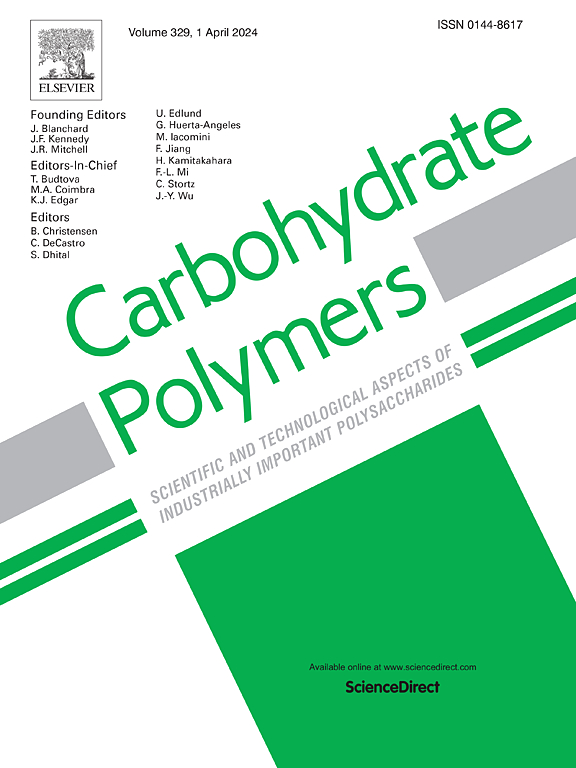Advances in fucoidan and fucoidan oligosaccharides: Current status, future prospects, and biological applications
IF 10.7
1区 化学
Q1 CHEMISTRY, APPLIED
引用次数: 0
Abstract
Sulfated polysaccharides (SPS) derived from seaweeds are precious bioactive compounds of diverse biological activities. Fucoidan is a complex SPS composed of L-fucose and sulfate groups, can be extracted from brown seaweeds, as well as microbial, insect, plant glycans, and marine invertebrates. It has gained considerable attention due to its anti-inflammatory, anticancer, antiviral, antithrombotic, hypolipidemic, and immune-modulatory properties. Recent research has focused on the extraction and extensive characterization of fucoidan. Its structural complexity, influenced by species, sources, and harvesting conditions, directly influences its bioactivity, with higher sulfation and lower molecular weight enhancing its activity. Interestingly, fucoidan oligosaccharides (FOs) play a critical role in various metabolic processes and hold significant potential in disease diagnostics. This comprehensive review explores the current status of fucoidan research, covering its sources, extraction and purification techniques, structural variations and biological activities. Additionally, we highlight its potential health benefits, providing insights for researchers interested in sulfated polysaccharides.

岩藻聚糖和岩藻聚糖低聚糖的研究进展:现状、前景和生物学应用
从海藻中提取的硫酸多糖是一种具有多种生物活性的珍贵生物活性化合物。岩藻糖聚糖是一种由L-基团和硫酸盐基团组成的复合SPS,可从褐藻中提取,也可从微生物、昆虫、植物聚糖和海洋无脊椎动物中提取。由于其抗炎、抗癌、抗病毒、抗血栓、降血脂和免疫调节的特性,它已经获得了相当大的关注。近年来的研究主要集中在岩藻聚糖的提取和广泛的表征上。其结构的复杂性,受物种、来源和收获条件的影响,直接影响其生物活性,较高的硫酸化和较低的分子量增强了其活性。有趣的是,岩藻聚糖寡糖(FOs)在各种代谢过程中发挥关键作用,在疾病诊断中具有重要潜力。本文综述了岩藻聚糖的来源、提取纯化技术、结构变化及生物活性等方面的研究现状。此外,我们强调其潜在的健康益处,为对硫酸多糖感兴趣的研究人员提供见解。
本文章由计算机程序翻译,如有差异,请以英文原文为准。
求助全文
约1分钟内获得全文
求助全文
来源期刊

Carbohydrate Polymers
化学-高分子科学
CiteScore
22.40
自引率
8.00%
发文量
1286
审稿时长
47 days
期刊介绍:
Carbohydrate Polymers stands as a prominent journal in the glycoscience field, dedicated to exploring and harnessing the potential of polysaccharides with applications spanning bioenergy, bioplastics, biomaterials, biorefining, chemistry, drug delivery, food, health, nanotechnology, packaging, paper, pharmaceuticals, medicine, oil recovery, textiles, tissue engineering, wood, and various aspects of glycoscience.
The journal emphasizes the central role of well-characterized carbohydrate polymers, highlighting their significance as the primary focus rather than a peripheral topic. Each paper must prominently feature at least one named carbohydrate polymer, evident in both citation and title, with a commitment to innovative research that advances scientific knowledge.
 求助内容:
求助内容: 应助结果提醒方式:
应助结果提醒方式:


